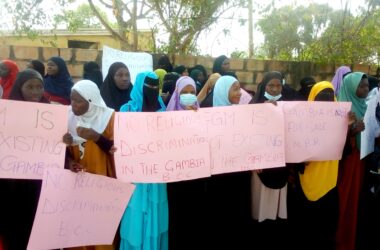 (JollofNews)- The Gambia’s National Assembly Monday voted unamimously to ban the practice of Female Genetal Mutilation (FGM) in the West African country.
(JollofNews)- The Gambia’s National Assembly Monday voted unamimously to ban the practice of Female Genetal Mutilation (FGM) in the West African country.
The practice which was traditionally carried out for hundred of years by older community women in unhygienic conditions and in isolated settings, was justified and promoted in the Muslim dominated on religious and traditional grounds.
It involves cutting female genitalia – often when girls are young – to remove their labia and clitoris, which often leads to lifelong health complications, including bleeding, infections, vaginal pain and infertility.
Almost 80 per cent of women and girls have undergone FGM in Gambia, with the majority of female survivors claiming they were forced to undergo the procedure because their interpretation of Islam requires it.
But under the new law, people found guilty of performing the traditional practice could be sentenced to three years imprisonment or receive a D50,000 fine.
The legislation banning the controversial surgical intervention in the country follows a surprised announcement last month by President Yahya Jammeh during his annual Dialogue With The People’s Tour. He said the ban on the harmful traditional practice was needed as it was not a mandatory requirement in Islam.















